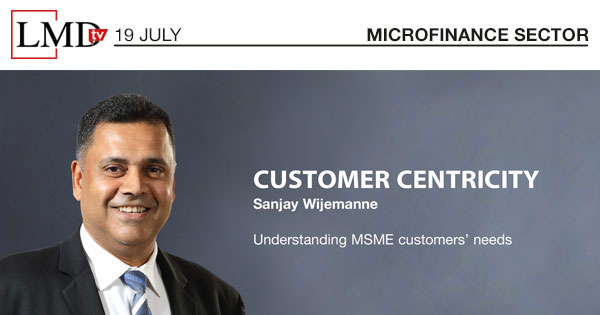 It is widely accepted that the past year has been one of the toughest periods for any company to manoeuvre. And for micro, small and medium enterprises (MSMEs), the challenges to keep business afloat have been even worse.
It is widely accepted that the past year has been one of the toughest periods for any company to manoeuvre. And for micro, small and medium enterprises (MSMEs), the challenges to keep business afloat have been even worse.
“The worst [challenge] was the high interest rates, which was a huge burden for companies. Second was the exchange rate movement and thirdly, the inflation hike, which made the cost of running a business almost double or triple,” noted the Deputy General Manager of Retail & SME Banking at Hatton National Bank (HNB) Sanjay Wijemanne, in an LMDtv interview not long ago.
MSMEs are estimated to comprise around 80 percent of businesses in Sri Lanka, and account for a substantial share of GDP and jobs, but often don’t have sufficient access to funding and other financial services.
According to Wijemanne, this situation worsened in the last 12 months since these enterprises have been burdened with high interest rates on loans and other issues that make it “almost impossible for them to run a business.”
He noted how companies big or small, and even individuals, have realised the hardships and been “cautious in terms of expansion and working capital while controlling their business functionality.”
Wijemanne elaborated: “Companies must take a good look at their business, and understand their course, distribution channels and retail stores. They must look at how they operate. Everyone has had to look at every single penny in the business to understand where they’re spending it. The inputs to a business, staff and everything must be looked at in greater detail.”
A key change that MSMEs need is transitioning from being slightly disorganised to arranging their operations and financials in an orderly manner, and also looking at moving into digital scenarios such as opting for credit card payments or web-based collections, he recommended.
Wijemanne noted: “All the sophistication is available in the market and it is now up to SMEs to look at these options and take part in some of the changes that are happening – and then look at completely restructuring, remodelling and being there with the market.”
Along with the changes from SMEs and MSMEs, he called on banks and financial institutions to change how they offer value additions to these businesses, stating that “we need to understand each one of those customers and the impacts that each business has had.”
He explained: “It is important that banks understand and engage with these customers, and not look for one-size-fits-all solutions. Solutions have to be tailor-made to cater to a customer’s requirement.”
“You cannot sit in a branch or head office, and look at these businesses and offer solutions. You have to be on the ground, understanding every customer as an individual or a company and provide solutions accordingly,” Wijemanne stressed.
Given how banks too must be careful in terms of managing their liquidity levels and cash flows, he emphasised the need for mutual understanding: “It’s how close you are to customers, understanding their requirements, and being able to work on a joint plan that works for both the bank and customer – it can’t be a one-way street.”
HNB’s Deputy General Manager of Retail & SME Banking also highlighted the need for MSMEs to have financial discipline: “Financial discipline is important – to plan and understand how a company runs because it’s not like an individual; and to understand the economy, environment, competition, funding and changes that are happening.”
“They must also know how to build a savings base so they can go through [crisis] situations of this nature in the future, and not take every penny they earn and either put it back into the business or take it out for various other things,” he declared.
Wijemanne surmised that “now is the time that the country needs to take off, and both MSMEs and microfinance customers will play a big role in the future of how it grows.”





